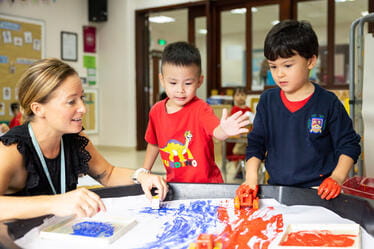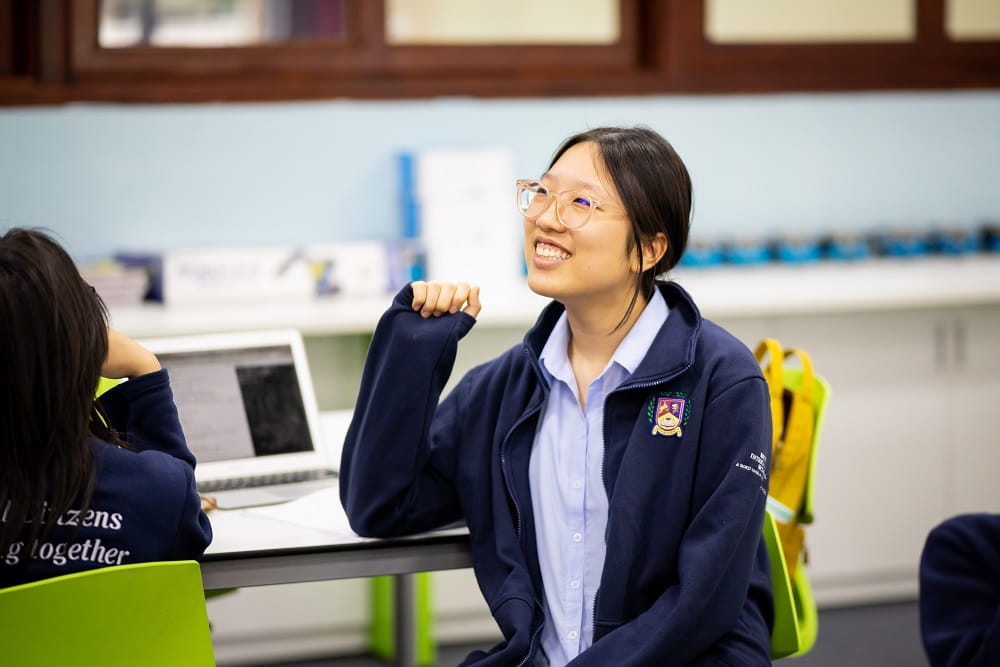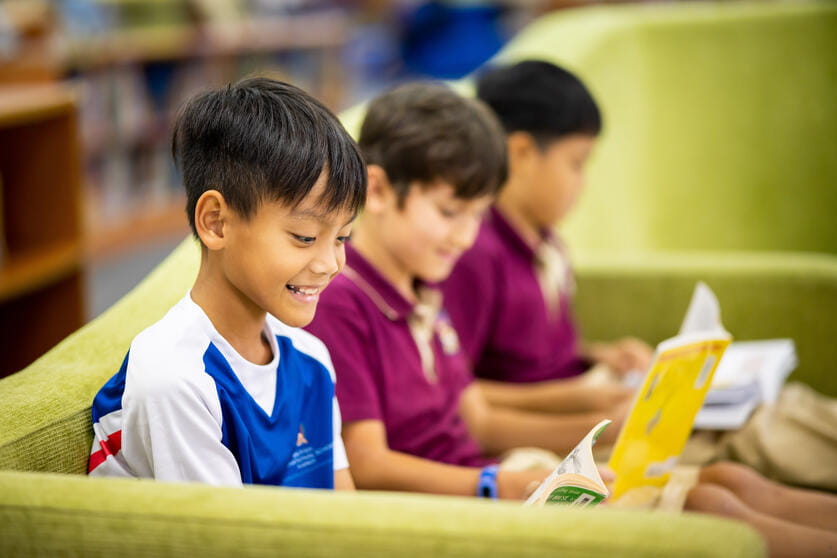The importance of play has also been emphasised by key theorists in education such as Maria Montessori and Jean Piaget.
Montessori believes that children learn about their world, themselves and others through play. Play teaches children to figure out how things work, pick up new ideas, build muscle control and strength, use their imagination, solve problems and learn how to cooperate with others.
Piaget regards play in the early years as critical to the development of intelligence in children. He says that when your child plays, individually and with others, their cognitive skills such as thinking, remembering, learning and paying attention are all being developed.
We can also see for ourselves how our youngest learners showcase the many skills they are developing during play.
.jpg?rev=b57112dbec91452ab79d8a2e2fa38c2e&hash=8409773A9198289798269D5F1796C2BB)
For example, in our construction areas we see children take on different roles and responsibilities. Through moving planks of wood, stacking bricks, and creating ramps and bridges, the children are enhancing their fine and gross motor skills. The children are also observing, making decisions and problem solving. For example, ‘How can we get the animals out of the enclosure?’, ‘We must create an exit!’. The children also show perseverance if something goes wrong.

Sensory play, often referred to as ‘messy play’, is not always appealing for some - for fear of getting too messy! However, the benefits that sensory play offers are invaluable to child development. Sensory play gives children the freedom to explore a huge range of experiences by using their five senses: touch, smell, sight, hearing and taste.
In addition to being fun and stimulating for young children, sensory play can assist children with touching, smelling, and playing with different textures. As the child develops trust and understanding of each texture, it helps build positive pathways in the brain. It facilitates exploration and investigation, which in turn supports language development.

Play at BIS Hanoi is pre-planned depending on each child’s interests and stage of development, but there are many easy ways to support your child’s play at home.
Examples include cooking and baking together, arts and crafts activities, board games, water play, and construction activities (such as playing with LEGO). Playing with your child is something that can be done in your first language, as the importance of nurturing a child’s first language is key. First language skills transfer and support the learning of a second language.
So next time you think about ‘Play’, think about Imagination, Curiosity, Creativity, Problem Solving, Critical thinking, and Exploration - skills which are all needed for later in life and which are greatly enhanced through play.
Holly Carmichael
Assistant Head of Primary
.jpg?h=666&iar=0&w=1000&rev=896f41d7741a44a7bc3e05ce7c46a208&hash=77AF6F93126285AE3E2E29B73805F67F)

.jpg?rev=b57112dbec91452ab79d8a2e2fa38c2e&hash=8409773A9198289798269D5F1796C2BB)





